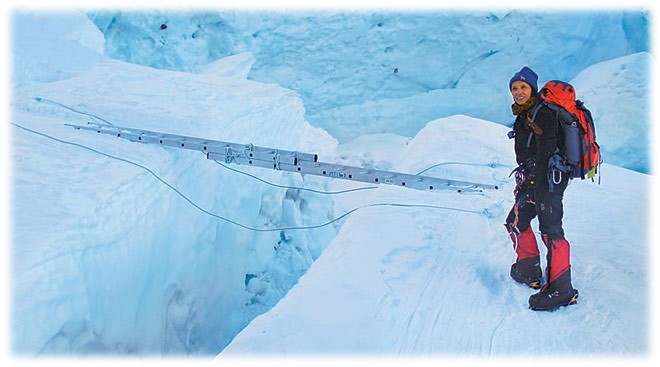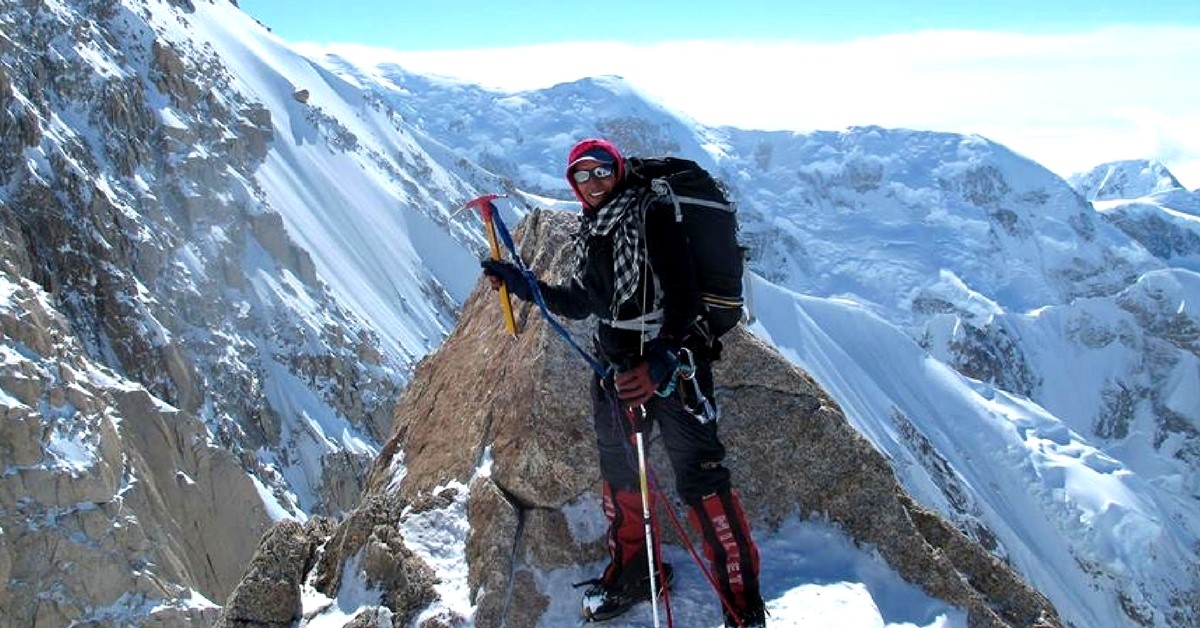Premlata Agarwal is a mountaineer. This one word holds some of her greatest achievements. She is the first Indian woman to have climbed the Seven Summits or the seven highest peaks of the world. Hailing from Jamshedpur, Premlata started her career as a mountaineer in her late thirties under the guidance of Bachendri Pal. She was conferred with the Padma Shri in the year 2013 and is also the winner of the Tenzing Norgay National Adventure Award.

Image Courtesy – Indiatoday.in
Q: When did you start thinking about mountaineering and when did you take it up?
I started in 1999. We have a Dalma Hill in Jamshedpur where the Tata Steel Adventure Foundation, led by Bachendri Pal, hosts Dalma Hill Walking Competition annually. I used to visit the fitness centre at the Foundation. So, that year, I decided to take part as well. After that trek I realised that I was quite fit and capable of doing such treks. During that time, I met Bachendri Pal, as I wanted my daughters to join the trekking club. From there, one thing led to another and I did my first trek with my daughter at the Nehru Mountain Institute, which lasted 21 days. At that time, I was around 35 and I was fit enough to complete the trek. That’s when Bachendri ji asked me to do a basic mountaineering course which has to be done at an institute, which I completed at the Himalayan Mountaineering Institute. This course was for 28 days. Those days, in the 2000s, people frowned upon women taking up such sports. As a housewife they did not see me fit to do such things. This course was in Darjeeling, which fortunately happens to be the city where my parents live. So, during the month of May, I left my daughters at my parent’s house and attended that course. That experience for me was very positive. I won an award too at the base training. After that I started an expedition in 2004 with Bachendri ji on Island Peak in Nepal. In this manner, I kept going for treks and expeditions, which luckily for me were held during summer time, when my daughters had their vacations. This way I would take an expedition each year.
Q: What has been the most important thing to you while pursuing mountaineering?
For me the most important thing was the fact that I got to scale the Seven Summitsacross the world. To be able to get there and hoist the tricolour and the flag of my sponsors Tata Steel; for their trust and investment in me and my dreams, has been the most important part of it all. From that, I received medals, awards and recognition, which though motivates me, is a secondary need for me.
Q: Was Bachendri Pal your coach while you took these expeditions?
Bachendri ji has been a strong support system throughout. She was my first teacher who guided me. My coaches have been from the institute where I learnt basic mountaineering. But beyond that, she has been my coach, my guru and my inspiration.
Q: What are Bachendri Pal’s most treasured words to you, something you will never forget?
I went on an all-women’s expedition to Kilimanjaro with her. While climbing down Kilimanjaro, she said ‘You are fit for Mount Everest’. Till then, I had never thought of scaling the Everest, as there were fitter people around me. I had responsibilities at home, and Mount Everest requires a lot of time. To be fit for Mount Everest I would need a lot of time, and training for the peak itself takes around four months. For me, at that time it was impossible, but when she said that to me, I felt positivity and happiness.
Q: When you stood at the highest point in the world at Mount Everest what were your thoughts like?
I was elated. In fact, beyond happy. That was a moment where I certainly could not put words to my feelings.
Q: Do you train children for mountaineering?
Yes, I coach. But I not only coach children, but I coach a lot of women. There are women who give up after a certain age. They lose hope because they are not fit enough. Sometimes they suffer from ailments like joint pain, back aches and even arthritis. I teach these women that it is not too late. If I can, after being diagnosed with arthritis and back problems, then why can’t they? All it needs is some practice, after all, practice makes a man perfect. During my school days I could not even run 2 kilometres, but now, just recently I ran 25 kilometres in Kolkata Marathon. In fact, I finished the run in 3 hours and 9 minutes.
Q: You have scaled the Seven Summits and won so many awards. But, is there still something that you would like to do?
Oh, there is so much to do. To stay fit, I will keep doing whatever comes my way. I feel till there’s enough stamina in me I will keep doing something or the other. I have been running the 25-km marathon for three years now, and every year I keep breaking my own record by reducing the time I take. The first time I ran I took 3 hours and 25 minutes, the next time 3 hours and 20 minutes. So, with this, I hope to break my own record every year. People tell me with my growing age, I will lose my stamina, but I tell them, with practice, nothing is impossible. If something does not happen, it is because we do not want it to happen. We blame people, society and situations which is an excuse we give. So, if we want something we must reach for it, give it a 100%, and no one will be able to stop us.
Q: Have there been hurdles in your path on your way to becoming a mountaineer?
Of course, there were. Back in the day, fifteen years ago, when I used to wear a tracksuit and go running, women would call home and complain to my mother-in-law. They would say, ‘Why is your daughter-in-law running around in this tracksuit? She wants to climb a mountain? Doesn’t she have work at home?’ All these jibes we had to listen to. I would train, practice and go home and finish my chores. Fortunately, my in-laws were very supportive. Despite that, something or the other used to happen. But I had a goal, something good and noble. For that, one must put in the extra effort required at training and at home. Without the support of your family, nothing is possible.

Image Courtesy – The Better India
Q: How does your family perceive your success as a mountaineer, now that you have done so well?
My family supports me in everything I do. This does not mean I take advantage (laughs) of that. I still do my chores and still go buy vegetables from the market. The mountains teach us that we are all mere specks in the world, small beings.
Q: Are your daughters interested in any sport?
Oh, yes. Both have visited the Everest Base Camp. My elder daughter joined me at the Thar Expedition, which is a 2000-km camel ride for forty days with the Border Security Force. My younger daughter takes yoga classes now.
Q: What is your message to the younger generation of the country?
The children these days have so much potential and energy, I wish they would use it in the right way, choose the right path for themselves. Life is not all easy, the more you work hard now, the better it will treat you in future.
Q: Have there been times when your learnings from your mountaineering experiences were applied somewhere else?
After my Mount Everest expedition, I decided to climb Mt. McKinley, also known as Denali. It is the highest peak in North America in the Alaskan Range. When I went I did not study much. I figured that if I could do Everest, this would be easier. It was that day that I realised that no mountain is easy to climb. The weather conditions got so rough that I could not climb the mountain and had to return from a few feet. That’s why it is important to not get too confident of yourself and work hard always. At Denali, you do not have porters who can carry your equipment and luggage. Everything must be done by yourself, with just a guide. Taking all of that 60 kg up on your back and walking for nine hours was not something I was prepared for. I nearly fell into my tent when I reached the base camp hoping for some warm tea, but nothing came (laughs). I got a swelling on my back because I was not used to that much weight. After that I went back to Darjeeling, trained for a month, climbing Tiger Hill and then climbed Denali. I trained hard enough to ignore the weather conditions, which was my earlier excuse. This taught me that we are all the same and small in front of that one big peak.
With this, we get a glimpse into the glorious journey of another one of India’s pride, a woman who defied so many odds that it seems almost like a fairy tale, one which every child should read, to work hard and to live their dreams despite the hurdles they face in life.

